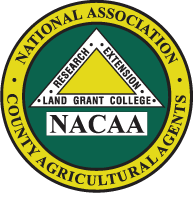WASHINGTON STATE UNIVERSITY: ADDRESSING TOTAL FARMER HEALTH
McMoran, D. W.1; Seymour, K2; Bachtel, S3; Sylvi Thortenson41Agriculture and Natural Resources Extension Faculty- Director, Washington State University, Burlington, WA, 98233
2Grant Coordinator, WSU Skagit County Extension, Burlington, WA, 98233
3Marketing and Communications, WSU Skagit County Extension, Burlington, WA, 98233
4ANR Program Support, WSU Skagit County Extension, Burlington, WA, 98233
Abstract:
Agriculture is known to be both a difficult and dangerous occupation. Washington State University (WSU) Skagit County Extension seeks to address various dimensions of Total Farmer Health®, including physical, mental, emotional, and social, through three programs. Funded by USDA NIFA under the National AgrAbility Project, the Washington State AgrAbility Project (WSAP) supports farmers and farmworkers with injuries and ailments in adopting tools, techniques, and equipment to return to work safely and enhance overall quality of life. WSAP provides worksite assessments for injured farmers and farmworkers, builds assistive technology Lending Library Kits for distribution throughout the state, offers low-interest loans and financial training through partner Northwest Access Fund, and will establish a web-based Pathway to Services network. Additionally, WSU Skagit County Extension is the lead agency in the Western Regional Agricultural Stress Assistance Program (WRASAP) with partners Oregon State University Extension and Volunteers of America of Western Washington. WRASAP is establishing a region-specific clearinghouse of resources available to farmers and farmworkers which address various stressors in agriculture. The program will also offer suicide prevention trainings and seek to support agriculture-specific suicide prevention crisis lines. Furthermore, the WSU Agricultural Suicide Prevention Pilot Program funded by the WA State Department of Health under House Bill 2671 provides education on the farmer health crisis, suicide risk factors and warning signs, and evidence-based suicide prevention approaches. In its pilot year the program created and distributed model marketing materials and leveraged Extension platforms to provide suicide prevention training and messaging through presentations, agricultural events, and Extension programs. A priority of the three programs is to ensure resources are accessible to all farmers, including Spanish-speaking farmers and farmworkers.
IMPACT: Combined, these programs reached over 60,000 people in less than one year through presence at agricultural events across the state. Additionally, television, radio, and newspaper coverage has reached over a million people across the state.
